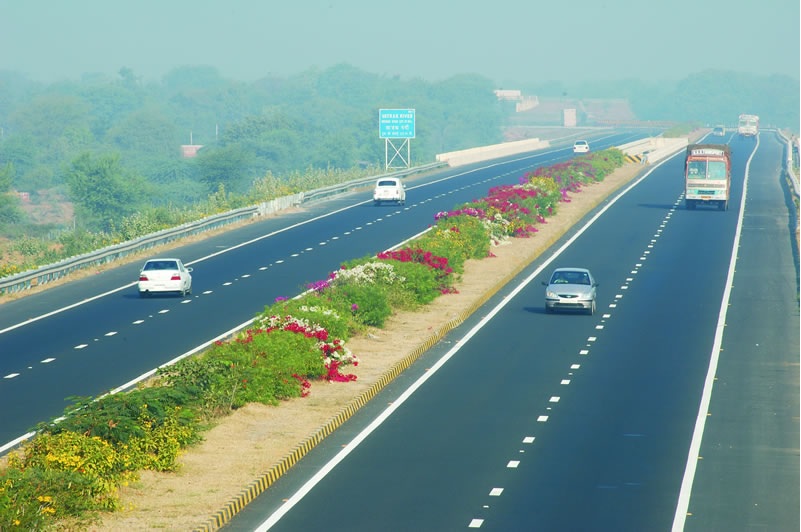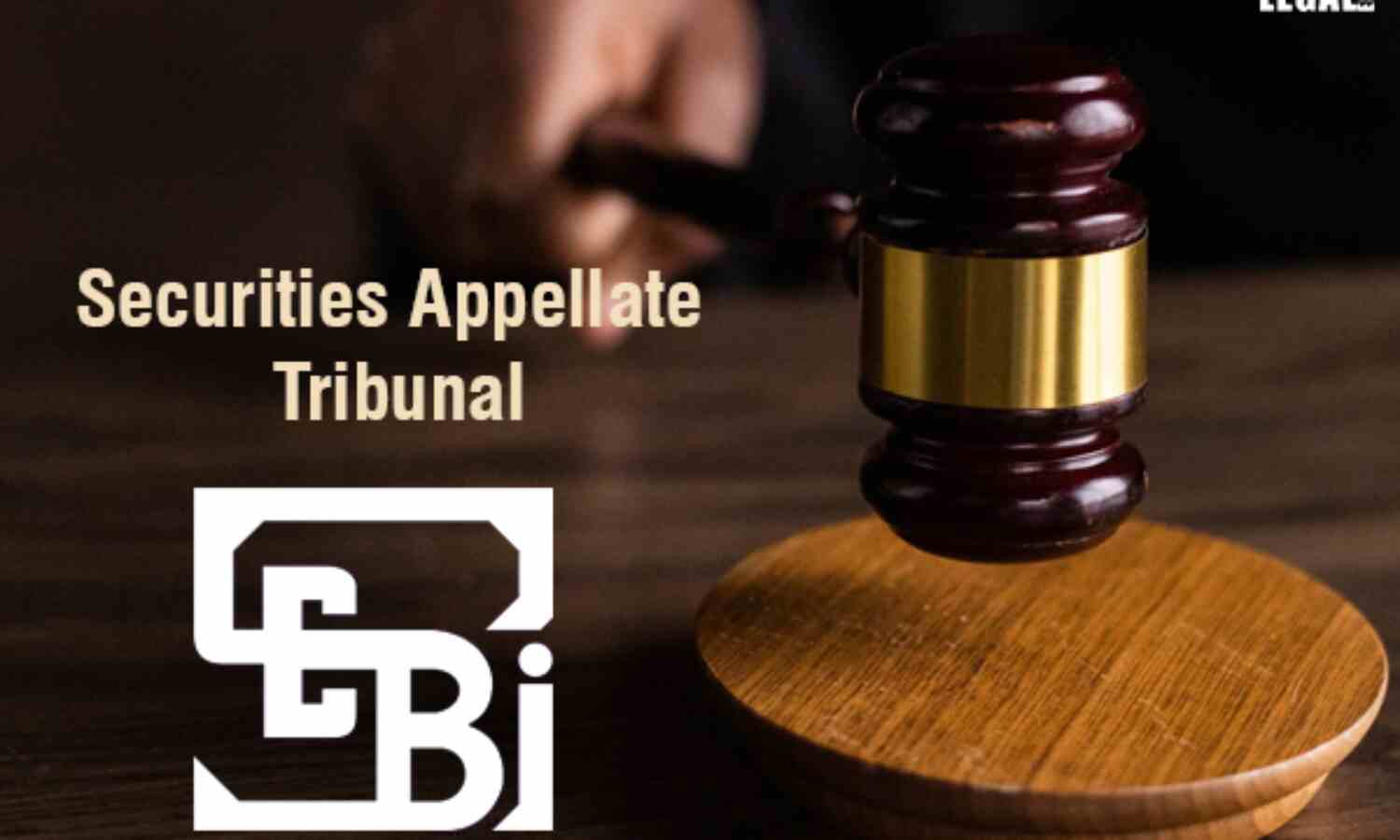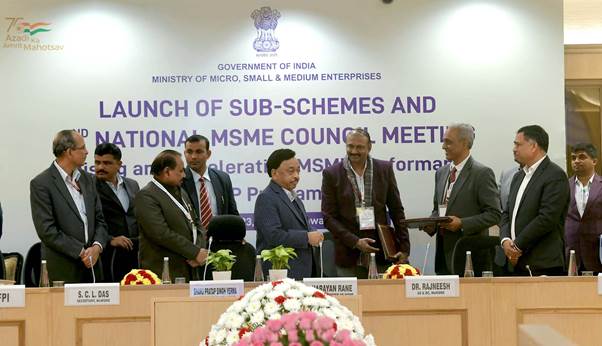Government bans anti-cold drug combination for kids aged under four (Indian Express)

- 21 Dec 2023
Why is it in the News?
The Central Drugs Standard Control Organisation (CDSCO) has prohibited the use of anti-cold fixed drug combinations in children below four years of age.
What are Fixed Dose Combination (FDC) Drugs?
- Fixed-dose combination (FDC) drugs, also referred to as combination products, embody a formulation containing two or more active drugs within a single dosage form.
- The United States Food and Drug Administration (FDA) defines a combination product as a composition involving a drug and a device, a biological product and a device, or a combination of a drug, device, and biological product.
- While the conventional approach favours formulating drugs as single compounds, the acceptance of fixed-ratio combination products hinges on two key criteria:
- Dosage Requirements: Each ingredient in the combination must meet the dosage criteria tailored to a specific population group.
- Proven Advantages: The combination should demonstrate a clear advantage over administering individual compounds separately in terms of therapeutic effect, safety, or compliance.
- FDCs have witnessed significant popularity in the Indian pharmaceutical market, experiencing notable growth in recent years.
About the Central Drugs Standard Control Organization (CDSCO):
- The Central Drugs Standard Control Organization (CDSCO) serves as the National Regulatory Authority (NRA) in India, overseeing the medical devices industry per the Drugs & Cosmetics Rules.
- Positioned under the Ministry of Health & Family Welfare, it is led by the Drugs Controller General of India (DCGI) with its headquarters situated in New Delhi.
- Operationalizing under the provisions of the Drugs and Cosmetics Act, CDSCO is entrusted with several crucial responsibilities, including the approval of new drugs, the facilitation of clinical trials, the establishment of standards for drugs, ensuring control over the quality of imported drugs, and coordination of activities among State Drug Control Organizations.
- One of its significant roles lies in collaboration with state regulators for granting licenses related to specialized categories of critical drugs.
- These encompass vital medical components such as blood and blood products, I.V. fluids, vaccines, and sera.
- The CDSCO plays a pivotal role in upholding standards, ensuring quality, and fostering coordination across the regulatory landscape for the benefit of public health in India.
Why the UK banned Air France, Lufthansa, and Etihad ads over ‘greenwashing’ claims (Indian Express)

- 21 Dec 2023
Why is it in the News?
Earlier in December, the United Kingdom’s ad regulator banned advertisements from Air France, Lufthansa, and Etihad for allegedly misleading consumers regarding the environmental impact of air travel.
What is Greenwashing?
- Greenwashing is the deceptive practice of creating a false impression or providing misleading information about the environmental sustainability of a company's products.
- It involves making unverified claims to lead consumers to believe that a company's products are more environmentally friendly or have a more positive impact on the environment than is accurate.
- Furthermore, greenwashing can occur when a company highlights the sustainable aspects of a product to divert attention from its involvement in environmentally harmful practices.
- Companies may employ greenwashing tactics by using vague claims that lack substantiated data or scientific validation.
- For instance, a car vendor might assert that a vehicle is eco-friendly due to increased fuel efficiency, conveniently overlooking or downplaying the broader environmental impact of vehicle manufacturing processes.
What are the Concerns With Greenwashing?
The practice of greenwashing raises apprehensions on several fronts:
- Authenticity of Climate Goals: There is a risk of undermining the authenticity of climate goals when misleading or exaggerated information about environmental initiatives is presented.
- Unwarranted Recognition and Benefits: Entities involved in greenwashing may receive undeserved recognition or benefits, potentially rewarding irresponsible behaviour and discouraging genuine sustainability efforts.
- Market Distortion: Greenwashing can distort markets by creating an uneven playing field.
- Entities engaging in deceptive practices might gain an unfair advantage over those genuinely adhering to stringent environmental standards.
- Lack of Comprehensive Regulations: The absence of comprehensive regulations and standards for environmental claims allows greenwashing to persist without adequate scrutiny, contributing to a lack of transparency.
- Challenges to Carbon Credit Systems: The practice of greenwashing introduces challenges to the integrity of carbon credit systems.
- This is particularly evident in informal markets, where the expansion of credit sources and certification by unofficial entities raise concerns about transparency and reliability.
- It's crucial to note that in the context of carbon credits, one credit represents the removal of one metric ton of carbon dioxide or equivalent greenhouse gases from the atmosphere.
- The concept of carbon credits was introduced by the Kyoto Protocol, providing rewards to countries or firms surpassing emission reduction mandates.
Global Initiatives Addressing Greenwashing:
- During the 27th Conference of Parties (COP27), the United Nations Secretary-General declared a zero-tolerance stance against greenwashing.
- Private corporations were urged to rectify their practices to align with genuine environmental efforts.
- In a landmark move in October 2023, the European Union approved the world's first green bond standards.
- These standards, under the "European Green Bond" label, mandate transparency and direct 85% of funds towards sustainable activities within the EU.
- The legislation aims to support the EU's transition to climate neutrality.
Laws in India:
- In India, greenwashing is classified as an unfair trade practice under the Consumer Protection Act, 2019.
- This legislation prohibits deceptive claims and outlines penalties and remedies for consumers adversely affected by such misleading practices.
- In February 2023, the Securities and Exchange Board of India (SEBI) issued guidelines for issuers of green debt securities.
- These guidelines are designed to ensure transparency, prevent greenwashing, protect investors, and regulate the development of the securities market.
- The Advertising Standards Council of India (ASCI), a voluntary self-regulatory organization, plays a crucial role in monitoring advertising practices.
- It holds jurisdiction over allegations of greenwashing, ensuring that ads are not only legal but also honest and fair.
- The ASCI's regulatory efforts aim to safeguard consumer interests and promote fair competition within the Indian advertising landscape.
Bhoomi Rashi Portal is revolutionizing land acquisition for Highway projects – Here’s how (Financial Express)

- 21 Dec 2023
Why is it in the News?
Union Minister of Road Transport and Highways Nitin Gadkari revealed in a recent statement to the Rajya Sabha that the Bhoomi Rashi portal is instrumental in expediting the development of highway infrastructure in India.
About the Bhoomi Rashi Portal:
- The acquisition of land was done manually before the year 2018. The data files were moved physically, leading to some limitations. This included delays in issuing notices, errors in land details, etc.
- To overcome the issues, the Ministry of Road Transport and Highways came up with a system.
- It is known as “Bhoomi Rashi”.
- The portal came into force on 1st April 2018
- The system is digital and automates the whole land acquisition (LA) process.
- It made and still makes the LA process more transparent and error-free.
- The portal processes the notices at every stage on a real-time basis.
Key Objectives:
- Acceleration of Land Acquisition: The primary goal is to facilitate a quicker and more efficient land acquisition process for National Highways.
- Centralized Processing: Acting as a singular online platform, it consolidates the processing of land acquisition notifications, contributing to the swift development of highway infrastructure projects.
- Transparency and Accountability: Ensures transparency and accountability throughout the land acquisition process.
- Direct Benefit Transfer: Facilitates the electronic transfer of benefits directly to the accounts of the beneficiaries involved in the land acquisition.
Salient Features:
- Bilingual application with Hindi and English for easy usability
- Preparation of interface for adding basic details of the project, including land acquisition sanction details
- Preparation of interface for Land Acquisition locations. villages
- Preparation of Interface for Competent Authority for Land Acquisition (CALA) details. CALA is a revenue functionary of the State Government appointed for each NH Project.
- Interface for generating land acquisition notification
- Interface for land Details
- Interface for generation of notification: organisational email IDS for all those involved in the process flow to ensure smooth e-office management
- Interface for Objections and processing
- Interface for compensation determination and finalisation
- Interface for land owners and affected parties
- Interface for reports generation
The portal is seamlessly integrated with the Public Financial Management System (PFMS) of the Ministry of Finance, ensuring real-time deposit of compensation into the accounts of affected/interested individuals.
What is Land Acquisition?
- Land acquisition is the governmental process, whether at the state or union level, through which private land is procured for infrastructure development, urbanization, or industrialization.
- In exchange, the government provides appropriate compensation to the landowner based on market value and assumes responsibility for the rehabilitation and resettlement of those affected by the land acquisition.
SAT quashes Sebi's order against Kishore Biyani, and others (Live Mint)

- 21 Dec 2023
Why is it in the News?
The Securities Appellate Tribunal (SAT) on Wednesday quashed regulator Sebi's order banning Future Retail chairperson Kishore Biyani and some other promoters from the securities market for one year in an insider trading case.
About the Securities Appellate Tribunal (SAT):
- Established as a statutory and autonomous entity under the Securities and Exchange Board of India (SEBI) Act, 1992, the Securities Appellate Tribunal (SAT) serves as a crucial forum for adjudicating appeals against decisions made by SEBI or its adjudicating officers.
Key Functions:
- Appeals Jurisdiction: Primarily tasked with hearing appeals against orders issued by SEBI or its adjudicating officers under the SEBI Act.
- Extended Jurisdiction: Additionally, SAT entertains appeals concerning orders from the Insurance Regulatory and Development Authority of India (IRDAI) and the Pension Fund Regulatory and Development Authority (PFRDA) related to cases filed before them.
Composition:
- Presiding Officer: A retired or sitting Supreme Court judge, Chief Justice of a High Court, or a High Court judge with at least seven years of service.
- Judicial Member: High Court judge with a minimum of five years of service.
- Technical Member: Individual with expertise and a minimum of 15 years of experience in the financial sector, including securities market, pension funds, commodity derivatives, or insurance.
- This member can be a senior official in the Central or State Government or a person of proven ability and integrity.
Appointment and Tenure:
- Appointments made by the Central Government in consultation with the Chief Justice of India or its nominee.
- Presiding Officer and members serve a term of five years, eligible for reappointment for an additional term of up to five years.
- No member shall hold office after reaching the age of 70.
Powers and Authority:
- They are empowered with the same powers as a civil court under the code of civil procedure when adjudicating suits.
- Appeals to SAT can be made by any person aggrieved by SEBI or adjudicating officer orders, excluding those made with the consent of all parties.
Appeals Process:
- Appeals against SAT decisions can be filed in the Supreme Court, limited to questions of law.
- No appeal is permissible against orders made with the consent of all parties.
- The SAT, with its specific mandate and composition, plays a pivotal role in ensuring fairness and justice in the regulatory framework of the securities market in India.
What is Insider Trading?
- Insider trading is the act of buying or selling securities of a publicly traded company based on material information not yet disclosed to the public.
- Material information encompasses any data that could significantly influence an investor's decision to buy or sell the security.
- For instance, Consider a scenario where a government employee, possessing knowledge about an upcoming regulation that would favour a sugar-exporting company, takes advantage of this information by purchasing the company's shares before the regulation becomes public knowledge.
MSME Ministry launches 3 sub-schemes under RAMP programme; makes ZED scheme free for women (Financial Express)

- 21 Dec 2023
Why is it in the News?
MSME Minister Narayan Rane recently launched three sub-schemes under the ministry’s existing RAMP ((Raising and Accelerating MSME Productivity) programme.
About the RAMP Programme:
- The Raising & Accelerating MSME Performance (RAMP) program, supported by the World Bank and inaugurated in 2022, is dedicated to enhancing the performance of micro, small, and medium enterprises (MSMEs) across India.
Program Objectives:
- Market and Credit Access: Facilitate improved access to markets and credit for MSMEs.
- Institutional Strengthening: Enhance institutional and governance structures at both central and state levels.
- Center-State Collaborations: Foster improved linkages and partnerships between central and state entities.
- Delayed Payment Issues: Address challenges related to delayed payments within the MSME sector.
- Greening of MSMEs: Promote sustainable practices and the adoption of green technologies within MSMEs.
- The National MSME Council has been set up by the Ministry to work as an administrative and functional body of the RAMP Programme.
Sub Schemes under RAMP:
- MSME GIFT Scheme: Aims to support MSMEs in adopting green technology through interest subvention and credit guarantee assistance.
- MSE SPICE Scheme: Focuses on promoting circular economy projects, with credit subsidy mechanisms, aligning with the MSME sector's goal of achieving zero emissions by 2070.
- MSE ODR Scheme: A pioneering initiative leveraging modern IT tools and Artificial Intelligence to address delayed payment incidents for Micro and Small Enterprises.
- Implementing Agencies for Sub Schemes:
- MSME GIFT and MSME SPICE Schemes: Small Industries Development Bank of India (SIDBI)
- MSE ODR Scheme: National Informatics Centre Services Inc. (NICSI)
- These sub-schemes, under the RAMP umbrella, signify a comprehensive effort to fortify and propel the growth of MSMEs, incorporating technological advancements and sustainable practices.
